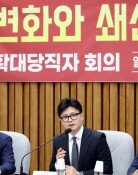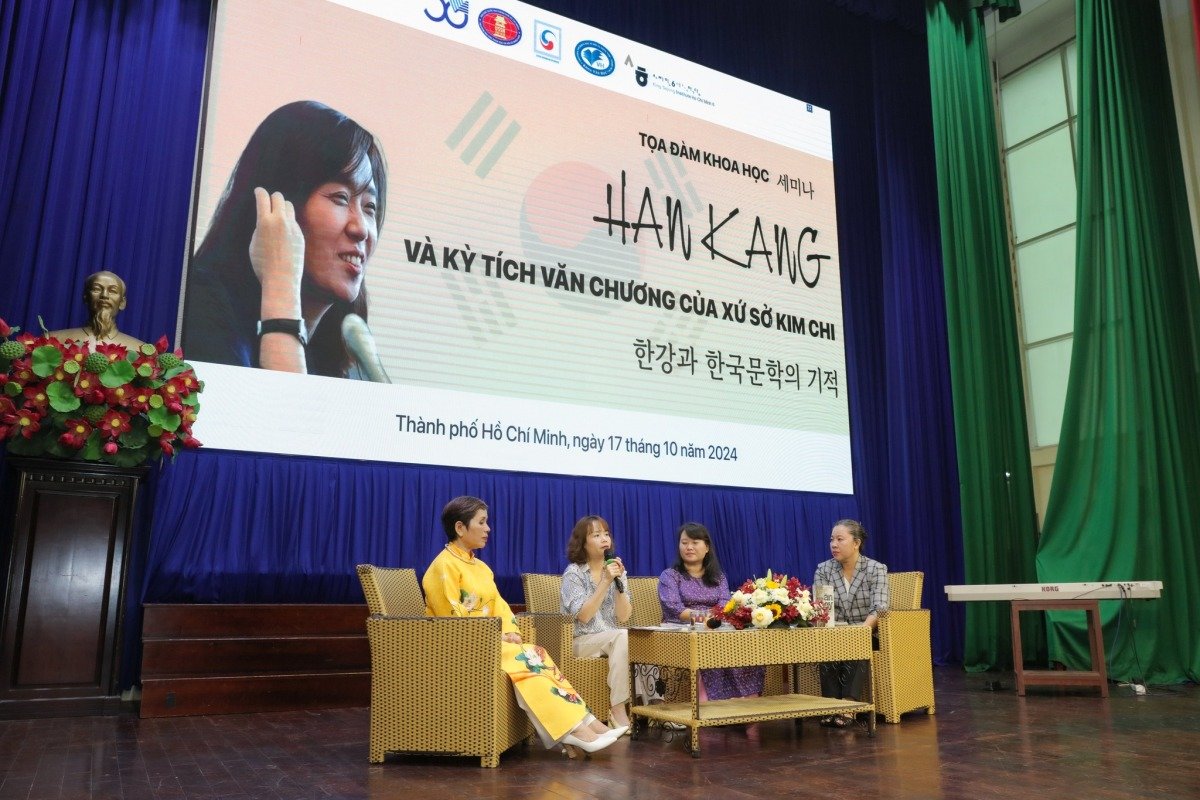Chairman`s Statement of the Third Asia-Europe Meeting
Chairman`s Statement of the Third Asia-Europe Meeting
Posted October. 21, 2000 19:42,
Introduction
1. The Third Asia-Europe Meeting (ASEM 3) was held in Seoul on 20-21 October 2000. It was attended by Heads of State and Government from ten Asian and fifteen European nations, with the President of the French Republic acting also as President of the Council of the European Union, and the President of the European Commission. Leaders were accompanied by their Foreign Ministers, a member of the European Commission and other Ministers. This momentous Meeting was chaired by the President of the Republic of Korea.
2. Leaders recalled the inaugural Summit in Bangkok on 1-2 March 1996 (ASEM 1), which forged a new comprehensive Asia-Europe Partnership for Greater Growth, envisaging cooperation between Asia and Europe in the political, economic, cultural and other areas, and the second Summit in London on 3-4 April 1998 (ASEM 2), where Leaders reinforced this partnership notably through their commitment to working together to address the economic and financial crisis in Asia.
Leaders recognized the Third ASEM in Seoul as a historic milestone in the evolution of the ASEM process, which provided a unique opportunity both to review achievements to date and to set the broad direction to take ASEM forward into a new millennium. Leaders reaffirmed their commitment to strengthening the Asia-Europe partnership and confirmed their intention to meet again at ASEM 4 in Copenhagen in 2002.
3. Leaders noted with satisfaction the progress made in the ASEM process since the Second ASEM on the basis of the principles agreed at the Bangkok and London Summits and set out in the Asia-Europe Cooperation Framework(AECF). They appreciated the discussions at the second Foreign, Economic and Finance Ministers' Meetings in 1999 and welcomed the holding of the Science and Technology Ministers' Meeting also in 1999.
Developments in the Two Regions
4. Leaders noted with particular satisfaction the clear signs of recovery in the Asian countries affected by the financial and economic crisis and recognized the importance of continued reform in the light of specific situations in countries concerned. They acknowledged that ASEM had played a crucial role in bringing Asia and Europe together to work in conjunction to address this crisis. They expressed their confidence that the renewed economic dynamism of Asia and the growing economic strength of Europe would in synergy promote prosperity and stability in both regions, thereby benefiting the international community as a whole in this increasingly interdependent world.
In this regard, expressing concern over volatility in oil prices, Leaders shared the view that ensuring a stable supply of energy, including oil and other fuels, was vital to the maintenance of long-term economic growth for all ASEM partners and the world at large.
5. Leaders welcomed the admission of Cambodia as a new member of ASEAN at the Special ASEAN Foreign Ministers¡¯ Meeting in Hanoi in April 1999 (¡°ASEAN 10¡±) and noted ASEAN¡¯s achievement of their goal of embracing all the ten countries in Southeast Asia. They also acknowledged that great progress had been made in East Asian cooperation at the ASEAN + 3 Summit held in Manila in November 1999, where ASEAN countries, China, Japan and the Republic of Korea affirmed the importance of meeting on a regular basis and adopted the Joint Statement on East Asia Cooperation. In this connection, they welcomed the progress made at the inaugural ASEAN+3 Foreign Ministers¡¯ Meeting held in Bangkok in July 2000. They further welcomed the progress made at the ASEAN+3 Finance Ministers' Meeting held in Chiang Mai in May 2000 and the ASEAN+3 Economic Ministers¡¯ Meeting also held in Chiang Mai in October 2000, as further strengthening East Asian financial and economic cooperation.
Leaders also took note of the continued development of the ASEAN Regional Forum(ARF) as an important forum for dialogue and cooperation on regional, political and security issues and welcomed the admission of the Democratic People's Republic of Korea(DPRK) in July 2000 as a significant step which has further strengthened the ARF and would help contribute to advancing the cause of regional peace and security.
6. Leaders welcomed the introduction of the euro and noted that it will contribute to greater exchange rate stability in the international monetary system. They also noted progress in the European Union Intergovernmental Conference to strengthen institutions of the European Union as well as in the European Union enlargement process. They further noted developments in security cooperation within the context of the Common Foreign and Security Policy, such as the European Security and Defense Policy.
Fostering Political Dialogue
7. Leaders noted that on the basis of the guiding principles for conducting political dialogue as established at the Bangkok and London Summits, the first and second ASEM Foreign Ministers¡¯ Meetings, and the regular Senior Officials' Meetings had been the occasion for useful discussions of regional and global issues of common concern, and had contributed to enhancing mutual awareness and understanding between partners.
8. Leaders reaffirmed their commitment to pursuing a secure international environment for all countries and to intensifying cooperation between Asia and Europe with a view to contributing towards international peace, stability and prosperity, and respect for international law. From this standpoint, they engaged in detailed discussions on regional and international issues of common interest.
Leaders welcomed the historic first inter-Korean Summit held in June 2000 in Pyongyang and acknowledged the great significance of this event which has laid the foundation for the peace process on the Korean peninsula. In recognition of the importance of this process, a separate declaration has been issued on the recent developments on the Korean peninsula.
Leaders welcomed the progress toward the restoration of stability in East Timor and encouraged further efforts by UNTAET, in cooperation with the countries closely involved, in order to guarantee the success of the transition process. They shared the view that the rehabilitation and nation building process in East Timor should be actively and continuously supported by the international community as a whole. They also recognized the important steps taken and the urgency to solve the problems still remaining, concerning the East Timorese refugees in West Timor, in a comprehensive manner. These actions should be aimed at ensuring reconciliation, peace and harmony for all Timorese.
Leaders stressed the importance of developing cooperation between the states of Southeastern Europe and in this context welcomed the Stability Pact and noted its aims. They also underlined the importance of the full implementation of UN Security Council Resolution 1244 in Kosovo.
Leaders expressed their concern at the situation in the Middle East. They welcomed the Summit in Sharm El Sheikh, which reached an agreement on measures in order to put an end to violence. They called upon the parties to put those measures into effect without delay.
Leaders welcomed the successful conclusion of the Millennium Summit held on 6-8 September this year at the headquarters of the United Nations. They particularly welcomed world leaders' renewed commitment to the purposes and principles of the United Nations Charter and reaffirmed the key objectives of the international community in the 21st century as identified in the Millennium Declaration. In this context, Leaders expressed their commitment to UN reform, with the goal of strengthening and enhancing the representativeness, transparency and effectiveness of the UN system, including the Security Council. They also called for better coordination between the UN and other relevant organizations in the area of development cooperation and confirmed the importance of sounder UN finances as well as providing the UN with sufficient financial resources to enable it to fulfill its mandate.
Leaders committed themselves to promote and protect all human rights, including the right to development, and fundamental freedoms, bearing in mind their universal, indivisible and interdependent character as expressed at the World Conference on Human Rights in Vienna.
Expressing their grave concern over the recurrent armed conflicts around the world, Leaders agreed to work together for effective prevention of conflicts in conformity with the UN Charter and international law. They also underlined the importance of maintaining global strategic balance and stability, and strengthening regional and global initiatives on arms control, disarmament and non-proliferation of weapons of mass-destruction. They further expressed their determination to preserve the integrity and validity of existing international arms control and disarmament treaties and to further develop ASEM dialogue and cooperation in these fields. They welcomed the successful results of the Treaty on the Non-Proliferation of Nuclear Weapons (NPT) Review Conference and looked forward to the full implementation of the Final Document adopted by consensus at the Conference. They reaffirmed their support for: the early entry into force of the Comprehensive Nuclear-Test-Ban Treaty; an immediate commencement of the negotiations in the Conference on Disarmament on a Fissile Material Cut-off Treaty, within the framework of an agreed working programme, with a view to their conclusion within five years; and an early conclusion of Ad Hoc Group negotiations on measures to strengthen the Biological and Toxin Weapons Convention. They further noted the progress made by the Organization for the Prohibition of Chemical Weapons in implementing the Chemical Weapons Convention and stressed the need to actively promote universality. Leaders appreciated the international community's efforts to deal with the suffering and casualties caused by indiscriminate use of anti-personnel land mines (APL) and support international assistance for training in demining, the removal of unexploded ordnance and the rehabilitation of victims. They also stressed the need to address the issue of small arms and light weapons, and agreed to work together for the success of the UN Conference on the Illicit Trade in Small Arms and Light Weapons in All Its Aspects in 2001.
Leaders shared the view that a rapidly changing world represents formidable challenges to the whole international community. In this regard, they expressed their commitment to ASEM playing a constructive role in promoting increased multilateral dialogue and cooperation, based on equal partnership, mutual respect and mutual benefit, and in building a new international political and economic order in light of the growing interdependence of Asia and Europe and the changing international environment.
9. Building on the conclusions of the Bangkok and London Summits and the Asia-Europe Cooperation Framework 2000, Leaders expressed their commitment to addressing global issues of common concern such as managing migratory flows in a globalized world and transnational crime, including money laundering; smuggling and exploitation of migrants and trafficking in persons, in particular of women and children for the purpose of sexual exploitation; international terrorism and piracy; racism and xenophobia; the fight against illegal drugs; the welfare of women and children; community health care improvement; the fight against HIV/AIDS, infectious and parasitic diseases; as well as food security and supply. In this respect, Leaders expressed their firm support for the adoption of the UN Convention against Transnational Organized Crime and its protocols by the end of the year 2000.
Leaders acknowledged that the degradation of the natural resource base and, in particular, the problem of energy and environment, is a challenge for all ASEM partners and reiterated their commitment to addressing global environmental issues, to ensuring a successful Sixth Conference of the Parties to the UN Framework Convention on Climate Change in November 2000, and to working towards the early entry into force of the Kyoto Protocol. In this context, they underscored the great importance of environmental protection and enhanced cooperation among ASEM partners. In this connection, they noted with appreciation the progress made by the Asia-Europe Environmental Technology Centre (AEETC) in Thailand since its formal opening in March 1999 and supported its efforts to act as a catalyst for enhanced cooperation in the environmental field.
Reinforcing Cooperation in the Economic and Financial Fields
10. Leaders committed themselves to promoting greater economic linkages between ASEM partners as an indispensable element of a strong partnership between the two regions. They noted in particular the substantial contribution of the trade and investment pledge made at ASEM 2 in stabilizing the economies hit by the Asian crisis and providing a strong basis for renewed growth in the region. They also welcomed the results of the second Economic Ministers' Meeting held in Berlin in October 1999 and those of the Senior Officials' Meetings on Trade and Investment.
Leaders decided to further intensify their efforts to increase trade and investment flows between the two regions and expressed satisfaction with the progress made in relation to the Trade Facilitation Action Plan (TFAP), particularly the concrete goals achieved since ASEM 2 as reflected in the report of the overall evaluation of TFAP, the addition of e-commerce as a new priority area, and the agreement to prepare voluntary annual reports on the status of individual partners to overcome the major generic barriers to trade as identified collectively by ASEM partners. They also noted the positive steps taken by SOMTI in implementing the Investment Promotion Action Plan (IPAP) including the expansion of the Virtual Information Exchange (VIE) website , which provides, inter alia, information on the investment regimes and opportunities of partners, and the compilation of a list of most effective measures to promote foreign direct investment (FDI), which was endorsed by Economic Ministers as a non-binding benchmark for partners. They asked Economic Ministers to maintain the momentum to ensure that these, and other mechanisms to be developed, will be implemented effectively to strengthen trade and investment regimes between Asia and Europe in an open and transparent manner. To this end, they endorsed the work programme annexed to the Trade Facilitation Action Plan: TFAP Deliverables and Goals for 2000-2002.
In this age of knowledge, information and globalization, Leaders recognized the importance of cooperation in the areas of information and communications technology as well as trade and investment. Leaders shared the view that information and communications technology have become pivotal engines of growth in the world economy and also that the resulting digital divide would deepen economic and social disparities in and among countries. With this in mind, they agreed to accelerate efforts to address the digital divide to promote the joint prosperity of the two regions and instructed Economic Ministers to review the progress made in this area. In this context, they also emphasized the need to establish and expand information and research networks between the two regions and among ASEM partners in order to facilitate the flow of knowledge and information as well as research exchanges.
11. Leaders reiterated the importance of a rules-based multilateral trading system in promoting global growth, prosperity and sustainable development and meeting the challenges of globalization. In this regard, they underlined their commitment to work together to promote further liberalization and to strengthen and develop rules through a new round of multilateral trade negotiations. They agreed to intensify their efforts with other WTO Members to launch such a round at the earliest opportunity. The negotiating agenda should reflect an overall balance, which responds to the interests of all WTO Members, including developing country Members. This would more likely be achieved by an inclusive approach to the agenda setting, with no a priori exclusion of subjects of interest to individual WTO Members, seeking to secure the WTO's continued relevance in the globalized world economy. To this end, they stressed that strong political will and greater flexibility as well as open and constructive dialogue among all WTO members would be necessary to lay the ground for the necessary consensus decision on the launching of a round.
Leaders welcomed the positive and constructive manner in which the negotiations under the built-in agenda have so far been carried out and pledged to actively pursue these negotiations in good faith. They recognized that more meaningful and balanced results within a reasonable time frame could be achieved if negotiations were conducted as part of a new round. In this regard, there was also a general understanding among them that further progress in the mandated negotiations would in turn have a positive effect on such multilateral negotiations.
Leaders also stressed that the interests and concerns of developing and least-developed countries should be duly addressed through various means, including, inter alia, improved market access opportunities and technical assistance for enhanced capacity-building, and addressing issues related to the implementation of Uruguay Round undertakings.
Leaders recognized that full participation in the WTO by ASEM partners will strengthen the system and reaffirmed their support for the acceleration of current accession negotiations of ASEM non-WTO Members, through the exchange of information, experience and technical cooperation, that would be based on mutually acceptable market access commitments and adherence to WTO rules. Leaders also stressed the importance of sustaining broad public support for the multilateral trading system and agreed to strengthen efforts to improve their engagement with the public regarding the benefits and challenges of trade liberalization.
Noting that the number of regional trade arrangements has been increasing in recent years, Leaders stressed the primacy of a multilateral trading system. In this regard, they agreed to ensure that all regional trade arrangements are consistent with WTO rules, complementing the multilateral trading system.
12. Noting with satisfaction that with substantial support from the international community, Asia is well on the way to recovery from the economic and financial crisis which broke out in 1997, Leaders assessed the status of ASEM activities aimed at strengthening cooperation in the financial area, particularly in preventing the recurrence of a crisis.
In this context, they reviewed the results of the second Finance Ministers' Meeting held in Frankfurt/Main in January 1999 and thereby recognized the significant impact of specific initiatives such as the ASEM Trust Fund and the European Financial Expertise Network in addressing problems in the financial and social sectors. They welcomed the progress made in the implementation of sound financial regulation, in particular in the Basel Core Principles for effective banking supervision. They also welcomed the steps already taken to strengthen the international financial architecture. Leaders recalled the crucial role of reform in creating the conditions for sound long-term growth, and invited European and Asian partners to exchange experiences on their respective economic reform efforts.
Leaders welcomed the achievements of the ASEM Trust Fund (ATF) in helping alleviate the impact of the economic and financial crisis on affected Asian countries. They supported the extension of the ATF into a Phase 2. In this connection, they called on the Finance Ministers in their Meeting in Kobe in January 2001 to determine the modalities for a Phase 2 ATF.
Upon assessing the vulnerability of the international financial market, Leaders agreed to take further measures to strengthen the international financial system and ensure long-term stability, stressing the importance of domestic financial reform and corporate governance. They agreed to make every effort to put the principle of orderly financial liberalization into practice. Leaders emphasized the need to implement codes and standards. They took note of the Financial Stability Forum¡¯s work on Highly Leveraged Institutions, and stressed the importance of implementing indirect regulations. They stressed that direct regulation would be considered if, upon review, the implementation of indirect regulation was not adequately addressing the concerns identified. They also reaffirmed that they remained committed to addressing potential problems associated with international volatile capital movement. In addition, they reiterated the need to enhance regulation in problematic Offshore Financial Centres, and underlined from this perspective the crucial role that the fight against money laundering should play in strengthening market integrity and therefore financial stability as a whole. In this perspective, they strongly supported the Financial Action Task Force¡¯s recommendations and their inclusion among the priority international standards. They also stressed the necessity of systematically involving private creditors in crisis prevention and resolution. They recognized the role of regional economic and monetary cooperation in promoting international stability, as exemplified by EMU.
Leaders encouraged the upcoming Finance Ministers' Meeting to study how European partners could share their experiences with Asian partners in fostering regional economic and monetary cooperation. They also asked Finance Ministers to examine how Asian partners could take into account major changes in the international monetary system resulting from the introduction of the euro.
Leaders expressed strong expectations that the third ASEM Finance Ministers¡¯ Meeting in Kobe would make further substantial developments in monetary and financial matters.
13. Leaders reiterated the need for ASEM to promote dialogue and cooperation between the business communities of the two regions and emphasized the central role of the Asia-Europe Business Forum (AEBF), reinforced with the adoption of the AEBF Guidelines in 1999. Leaders welcomed the positive results and the input from the AEBF concerning inter alia, trade facilitation and investment promotion as evidence of deepening business sector engagement in the ASEM process. They invited the AEBF to play a more active role in the activities carried out to implement TFAP and IPAP.
Recognizing that SMEs comprise the core economic activity of all countries and are essential in creating new jobs, Leaders welcomed the results of the Asia-Europe SME Conference and Seminar, and efforts on the part of the AEBF in encouraging Asian and European SMEs to pursue growth and prosperity in tandem and the development of networks among SME organizations to promote and facilitate SME activities between the two regions. They also welcomed the setting up of ASEM Connect to facilitate on-line business matching and access to information as part of ASEM's efforts to address the needs of SMEs.
14. Leaders, emphasizing the importance of Science and Technology (S&T), welcomed the results of the ASEM Science and Technology Ministers' Meeting (STMM) held in Beijing in October 1999. They welcomed the concrete progress since this meeting in measures to enhance S&T cooperation between Asia and Europe. They called for an intensification and further follow-up activities in areas of common interest and priorities identified at the meeting. These range from issues calling for global solutions, such as biodiversity conservation, bio-safety, including food security and sustainable economic and social development, etc. to the upgrading of research capacities of enterprises, the development of e-commerce and information technology, knowledge transfer from research institutes/universities to industry, S&T human resource development and agricultural S&T issues. Cooperation in these areas will be enhanced through the promotion of joint research, the exchange of researchers, seminars, training courses and networks of centres of excellence.
Promoting Cooperation in Other Areas, including Social and Cultural Issues
15. Leaders underscored the importance of enhancing mutual understanding between the two regions through closer people-to-people exchanges of various kinds in the social and cultural areas. Leaders also recognized the vivid and diverse cultures of Asia and Europe as a source of vitality to enliven the mutual cooperation between the two regions and noted that ASEM is an excellent vehicle to achieve this end.
Leaders recognized the crucial importance of education and agreed that a key priority should be to enhance the contacts and exchanges in this field, including student and academic exchanges, interuniversity cooperation and the facilitation of electronic networking between schools in the two regions. In this regard, they undertook to explore the possibility of mutual recognition of degrees, licences, etc., between educational institutions of the two regions. They also recognized the potential for the ASEM Education Hubs (AEH) and the Asia-Europe University (AEU) and other related activities in expanding educational cooperation, promoting greater cross-cultural contacts and fostering mutual understanding between Asia and Europe.
16. Agreeing on the need to ensure that the benefits of globalization are widely shared while reducing its adverse effects, Leaders expressed their commitment to strengthening the dialogue on socio-economic issues among partners. They underlined the importance of social and human resource development, including life-long learning, for the alleviation of economic and social disparities within and among ASEM countries, as well as for the sustained growth of both Asia and Europe and for promoting sustainable development in less developed areas such as the Mekong Subregion. They also confirmed their intention to enhance social safety nets to promote the welfare of the socially vulnerable. Leaders welcomed the outcome of the 24th Special Session of the United Nations General Assembly on the Implementation of the Outcome of the World Summit for Social Development, held on 26-30 June 2000 in Geneva, to review progress in the implementation of the Copenhagen Declaration of 1995. They expressed their commitment to overcome impediments to social development by adhering to the principles and goals of the Copenhagen+5 and by implementing the further actions and initiatives identified in the special session.
17. Leaders recognized the important role played by ASEF in promoting people-to-people contact, intellectual linkages and cultural exchanges between Asia and Europe since its establishment in February 1997, and reaffirmed their full support for ASEF's role as a key vehicle in increasing mutual understanding between the two regions. Leaders also took this opportunity to thank the outgoing management team of ASEF for their achievements and to welcome the new management team.
Taking Forward the ASEM Process
18. Building on the conclusions of the Bangkok and London Summits, Leaders :
¡¡¡¡- welcomed the Asia-Europe Vision Group Report submitted to ASEM 3. They expressed their appreciation to the members of the Group for their efforts in producing this Report which sets out a medium to long-term vision for the ASEM process and numerous valuable recommendations for promoting mutual cooperation between Asia and Europe;
¡¡¡¡- adopted the Asia-Europe Cooperation Framework 2000 (AECF 2000), drawn up on the basis of the AECF approved by the Leaders at ASEM 2 in London, and setting out the vision, principles and objectives, priorities and mechanisms for the ASEM process for the first decade of the 21st century.
19. In addition to the cooperation identified at the Bangkok and London Summits, and with a view to advancing the objectives and priorities set out in the Asia-Europe Cooperation Framework 2000, now adopted, Leaders :
¡¡¡¡- endorsed the following new ASEM initiatives :
¡¡¡¡(Globalization/Information Technology)
¡¡¡¡¡¤Conference on E-commerce and Logistics
¡¡¡¡¡¤Initiative to Address the Digital Divide
¡¡¡¡¡¤Roundtable on Globalization
¡¡¡¡¡¤Seminar on Asia-Europe Cooperation in SMEs
¡¡¡¡¡¤Seminar on Information and Telecommunications Technology
¡¡¡¡¡¤Trans-Eurasia Information Network
¡¡¡¡¡¤WTO Trade Facilitation Conference
¡¡¡¡(Transnational and Law Enforcement-related Matters)
¡¡¡¡¡¤Anti-corruption Initiative
¡¡¡¡¡¤Anti-money Laundering Initiative
¡¡¡¡¡¤Initiative to Combat Trafficking in Women and Children
¡¡¡¡¡¤Symposium on Law Enforcement Organs¡¯ Cooperation in Combating Transnational Crimes
¡¡¡¡(Human Resources Development/Environment/Health)
¡¡¡¡¡¤DUO, Fellowship Programme
¡¡¡¡¡¤Environment Ministers¡¯ Meeting
¡¡¡¡¡¤Initiative on HIV/AIDS
¡¡¡¡¡¤Ministerial Conference on Cooperation for the Management of Migratory Flows Europe-Asia
¡¡¡¡¡¤Science and Technology Cooperation on Forestry Conservation and Sustainable Development
¡¡¡¡- and took note of the following new activities proposed to ASEM and encouraged their further development within the context of the Asia-Europe Cooperation Framework 2000 :
¡¡¡¡¡¤Collaborative Research Program on Networking
¡¡¡¡¡¤Human Resource Development in Information and Communications Technology
¡¡¡¡¡¤Lifelong Learning
¡¡¡¡¡¤Overcoming Cultural Nuances: Toward a New Public Management
¡¡¡¡¡¤Project for a Euro-Asian Network for the Monitoring and Control of Communicable Diseases
¡¡¡¡¡¤Promoting Business Opportunities in ASEM
¡¡¡¡¡¤Seminar on Asia-Europe Cooperation on the Applications of Information Technology to Human Resources Development in the Mekong Sub-region
20. Looking forward to meeting at ASEM 4 in Copenhagen, Denmark in 2002, Leaders decided to hold the Fifth ASEM in Asia in 2004. They noted that, for the year 2001, Foreign, Economic and Finance Ministers would meet in China, Vietnam and Japan respectively. Leaders instructed Ministers to make a decision on the specific date and venue of their respective meetings for the year 2002 before ASEM 4.
Seoul
21 October 2000
Headline News
- Presidential Office signals possible offensive weapons aid to Ukraine
- N. Korea reportedly prepares military balloon attack with Russia
- Medical associations join bipartisan talks on expanding medical school quotas
- Former world No. 1 Ko Jin-young returns to LPGA
- Kakao unveils AI service ‘Kanana’ at 'if Kakao AI 2024'







